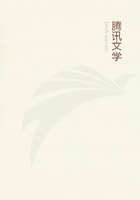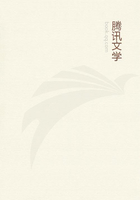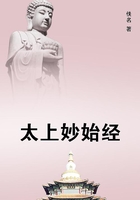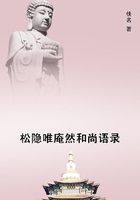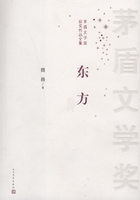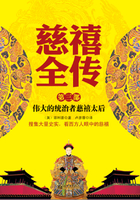In that school of misery, where bitter minds dreamed only of vengeance, where the sophistries hatched in such brains were laying up, inevitably, a store of evil thoughts, Max became utterly demoralized. He listened to the opinions of those who longed for fortune at any price, and did not shrink from the results of criminal actions, provided they were done without discovery. When peace was proclaimed, in April, 1814, he left the island, depraved though still innocent. On his return to Issoudun he found his father and mother dead. Like others who give way to their passions and make life, as they call it, short and sweet, the Gilets had died in the almshouse in the utmost poverty. Immediately after his return, the news of Napoleon's landing at Cannes spread through France; Max could do no better than go to Paris and ask for his rank as major and for his cross. The marshal who was at that time minister of war remembered the brave conduct of Captain Gilet in Portugal. He put him in the Guard as captain, which gave him the grade of major in the infantry; but he could not get him the cross. "The Emperor says that you will know how to win it at the first chance," said the marshal. In fact, the Emperor did put the brave captain on his list for decoration the evening after the fight at Fleurus, where Gilet distinguished himself.
After the battle of Waterloo Max retreated to the Loire. At the time of the disbandment, Marshal Feltre refused to recognize Max's grade as major, or his claim to the cross. The soldier of Napoleon returned to Issoudun in a state of exasperation that may well be conceived; he declared that he would not serve without either rank or cross. The war-office considered these conditions presumptuous in a young man of twenty-five without a name, who might, if they were granted, become a colonel at thirty. Max accordingly sent in his resignation. The major --for among themselves Bonapartists recognized the grades obtained in 1815--thus lost the pittance called half-pay which was allowed to the officers of the army of the Loire. But all Issoudun was roused at the sight of the brave young fellow left with only twenty napoleons in his possession; and the mayor gave him a place in his office with a salary of six hundred francs. Max kept it a few months, then gave it up of his own accord, and was replaced by a captain named Carpentier, who, like himself, had remained faithful to Napoleon.
By this time Gilet had become grand master of the Knights of Idleness, and was leading a life which lost him the good-will of the chief people of the town; who, however, did not openly make the fact known to him, for he was violent and much feared by all, even by the officers of the old army who, like himself, had refused to serve under the Bourbons, and had come home to plant their cabbages in Berry. The little affection felt for the Bourbons among the natives of Issoudun is not surprising when we recall the history which we have just given.
In fact, considering its size and lack of importance, the little place contained more Bonapartists than any other town in France. These men became, as is well known, nearly all Liberals.
In Issoudun and its neighborhood there were a dozen officers in Max's position. These men admired him and made him their leader,--with the exception, however, of Carpentier, his successor, and a certain Monsieur Mignonnet, ex-captain in the artillery of the Guard.
Carpentier, a cavalry officer risen from the ranks, had married into one of the best families in the town,--the Borniche-Herau. Mignonnet, brought up at the Ecole Polytechnique, had served in a corps which held itself superior to all others. In the Imperial armies there were two shades of distinction among the soldiers themselves. A majority of them felt a contempt for the bourgeois, the "civilian," fully equal to the contempt of nobles for their serfs, or conquerors for the conquered. Such men did not always observe the laws of honor in their dealings with civilians; nor did they much blame those who rode rough- shod over the bourgeoisie. The others, and particularly the artillery, perhaps because of its republicanism, never adopted the doctrine of a military France and a civil France, the tendency of which was nothing less than to make two nations. So, although Major Potel and Captain Renard, two officers living in the Rome suburb, were friends to Maxence Gilet "through thick and thin," Major Mignonnet and Captain Carpentier took sides with the bourgeoisie, and thought his conduct unworthy of a man of honor.
Major Mignonnet, a lean little man, full of dignity, busied himself with the problems which the steam-engine requires us to solve, and lived in a modest way, taking his social intercourse with Monsieur and Madame Carpentier. His gentle manners and ways, and his scientific occupations won him the respect of the whole town; and it was frequently said of him and of Captain Carpentier that they were "quite another thing" from Major Potel and Captain Renard, Maxence, and other frequenters of the cafe Militaire, who retained the soldierly manners and the defective morals of the Empire.
At the time when Madame Bridau returned to Issoudun, Max was excluded from the society of the place. He showed, moreover, proper self-respect in never presenting himself at the club, and in never complaining of the severe reprobation that was shown him; although he was the handsomest, the most elegant, and the best dressed man in the place, spent a great deal of money, and kept a horse,--a thing as amazing at Issoudun as the horse of Lord Byron at Venice. We are now to see how it was that Maxence, poor and without apparent means, was able to become the dandy of the town. The shameful conduct which earned him the contempt of all scrupulous or religious persons was connected with the interests which brought Agathe and Joseph to Issoudun.

